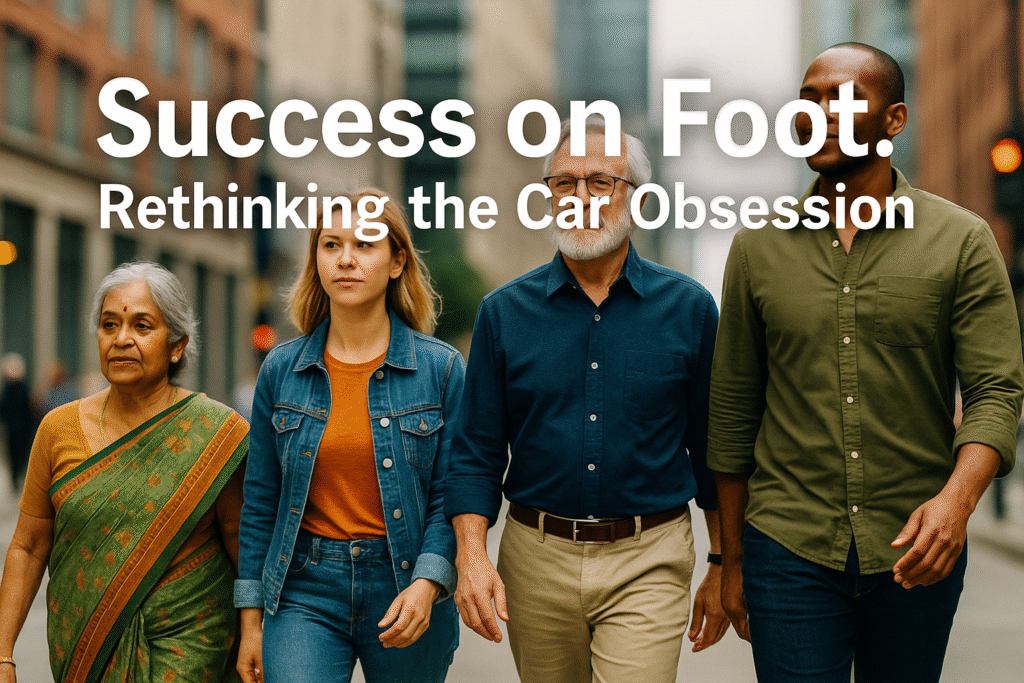From India to the West, let’s rethink the myth that cars define success. Walking isn’t weakness—it’s dignity, sustainability, and self-respect.
Editor’s Note – From Tripura24 to the World:
Whether you’re in Kolkata, California, or Oslo, we all see the same social message: if you drive a car, you’ve “made it.” If you walk, you must have no choice. But is that true, or just a product of conditioning?
At Tripura24, while our roots lie in India’s Northeast, our readers are global. That’s why we’re publishing this article—not just to provoke thought, but to challenge how we define success, dignity, and progress, regardless of where you live.
Status on Four Wheels: A Global Myth?
In West Bengal, teens dream of the first hatchback. In Los Angeles, it’s a Tesla. In Oslo, it might be a hybrid. Different models, same mindset: a car is not just transportation—it’s validation.
But here’s the catch: validation shouldn’t come from exhaust pipes or EMI statements.
The Real Cost of Appearances
In every society, families often push themselves to own a car, not out of true need, but to escape the social discomfort of not owning one.
A father in Asansol sells part of his land to buy a secondhand Swift for his newly employed son. A Norwegian student maxes out a credit card to lease a car to “fit in.” A middle-class family in Texas takes on a third loan, just to match neighbourhood standards.
All while the healthiest, happiest people in many parts of the world are walking to the park, to work, or just… for joy.
Walking Is Not a Punishment
We have been told walking = lack. But let’s reframe that: walking = strength, mindfulness, sustainability.
In Kolkata, 68-year-old Amiya Ghosh walks 3 km daily to his local library.
“I’ve never owned a vehicle. My legs are my ride, my peace, and my pride,” he says.
In Norway, many urban neighbourhoods are “car-light” by design. Locals walk, bike, or use public transit—not because they’re poor, but because they value calm, nature, and space.
In the US, walkable cities like Portland or Boulder are consistently ranked among the healthiest, not wealthiest.
Can We Teach the Next Generation a New Model of Success?
This isn’t about hating cars. They’re useful. But when they become the measuring stick of worth, we all lose.
So, how do we shift the narrative?
- Schools should celebrate walkability, not just “arrival.”
- Parents should praise health and environmental choices.
- Companies should offer mobility stipends, not just car bonuses.
- Governments must invest in safe walking and biking infrastructure globally.
Closing Words from Tripura24:
Success doesn’t roar down a highway. It walks beside you, in quiet health, strong legs, calm breath, and clear conscience.
Whether you’re reading this in Siliguri or San Francisco, think about what success looks like in your life. Maybe, just maybe, it doesn’t come with an engine.
Because dignity doesn’t drive. It walks.

